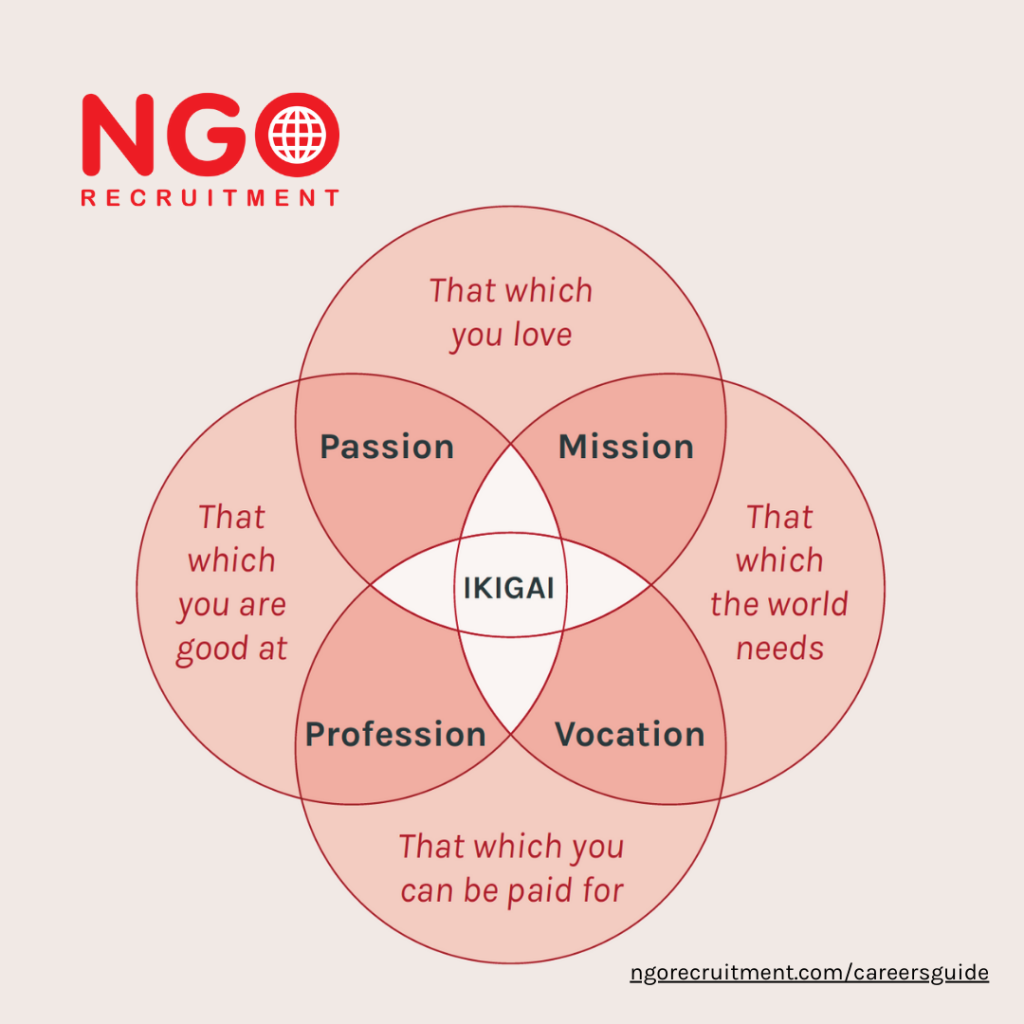
Numerous NGO Recruitment’s candidates have a fundamental desire to find meaningful work, contribute to a cause that is important to them, or ‘give back’ to society. They feel their life and career lack purpose, or that they have spent the first part of their careers in a job that didn’t ultimately fulfil them. We hear these sentiments daily from NGO Recruitment’s job seekers who often struggle to articulate what meaningful work means to them and are not sure how to find it.
If you need help making your desired transition into a not-for-profit (NFP) sector job, and you would like more clarity about your options, you can start with exploring the Japanese concept of IKIGAI.
Ikigai is a Japanese concept referring to something that gives a person a sense of purpose, a reason for living. The concept has long existed in Japanese culture, but was first popularised by Japanese psychiatrist and academic Mieko Kamiya in her 1966 book “On the Meaning of Life” (生きがいについて, ikigai ni tsuite). [1]
In his 1996 book “What Makes Life Worth Living? How Japanese and Americans Make Sense of Their Worlds”, Gordon Mathews talks about these basic concepts:
- What you love
- What you are good at
- What the world needs
- What you can be paid for
This diagram from Mark Winn (2014) illustrates the interrelationship of these concepts. Exploring each of these areas can help clarify what makes work meaningful for you and what some options for your career transition might be.

If you are interested to find out more or to access a self-coaching workbook, you can purchase The Ultimate Careers Guide to the Australian and Asia Pacific Not-for-Profit Sector here.
___________
[1] Kamiya, Mieko (1980). “『生きがいについて』 (“On the Meaning of Life” in Japanese)”. Japan: Misuzu Shobo. ISBN 4622081814.
